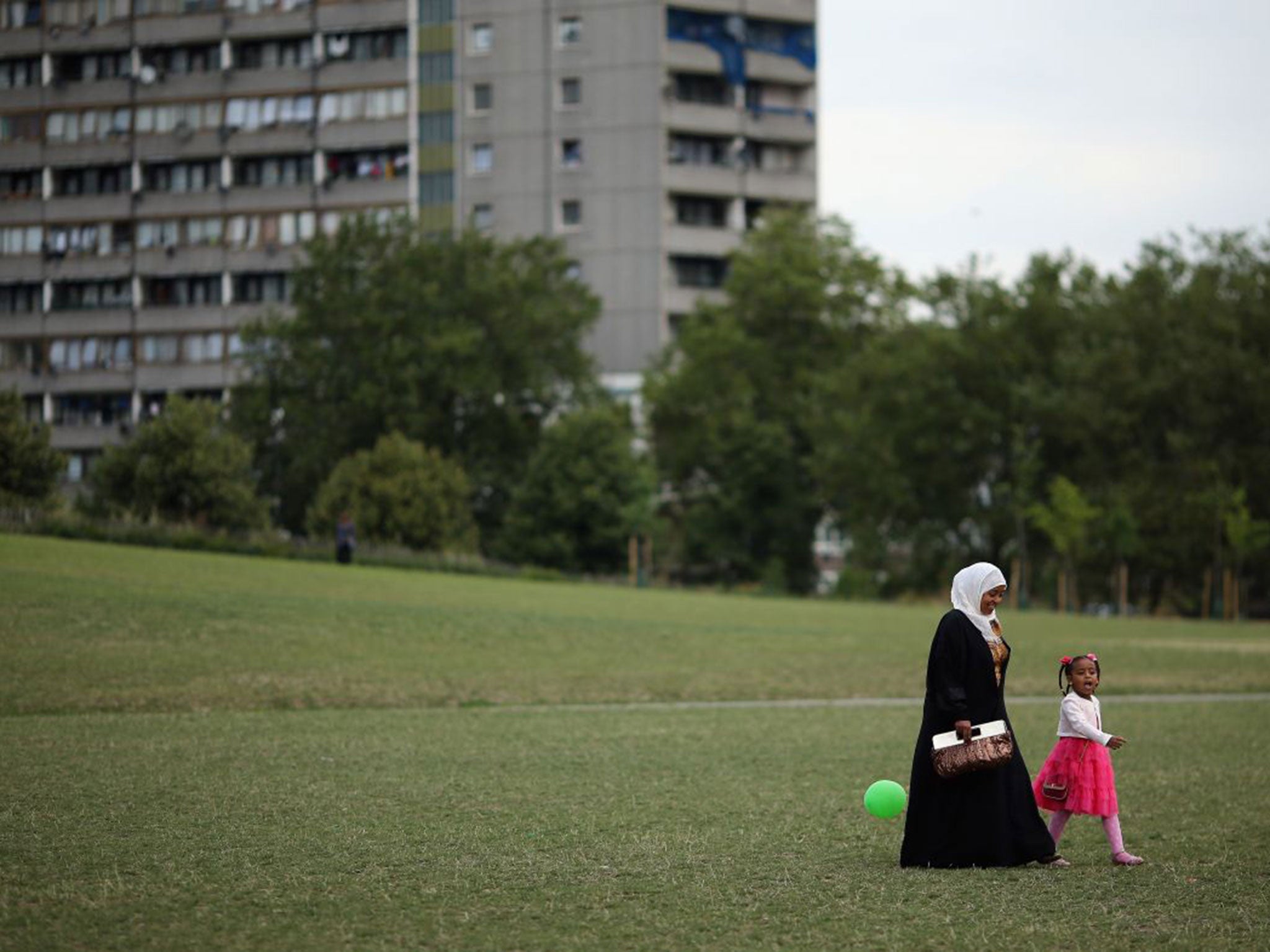Theresa May’s counter-extremism strategy ‘negatively affecting unemployed Muslims’
Some were reluctant to engage with researchers ‘for fear that our inquiry was part of the Prevent programme’ the report says

Your support helps us to tell the story
From reproductive rights to climate change to Big Tech, The Independent is on the ground when the story is developing. Whether it's investigating the financials of Elon Musk's pro-Trump PAC or producing our latest documentary, 'The A Word', which shines a light on the American women fighting for reproductive rights, we know how important it is to parse out the facts from the messaging.
At such a critical moment in US history, we need reporters on the ground. Your donation allows us to keep sending journalists to speak to both sides of the story.
The Independent is trusted by Americans across the entire political spectrum. And unlike many other quality news outlets, we choose not to lock Americans out of our reporting and analysis with paywalls. We believe quality journalism should be available to everyone, paid for by those who can afford it.
Your support makes all the difference.Theresa May’s campaign to stamp out the kind of Islamic extremism that breeds terrorism is aggravating the problems of a minority with the highest unemployment rate of any ethnic or religious group in the UK, a committee of MPs has warned.
When the MPs were conducting their inquiry into the job prospects of British Muslims, they encountered witnesses who were afraid to talk to them, because of the impact of the Counter Terrorism Act that Ms May introduced when she was Home Secretary, a year ago.
The all-party Women and Inequalities committee is urging the Government to draw up a plan by the end of this year to improve the employment prospects of Muslims – particularly Muslim women, who suffer the “triple penalty” of being women, being black or Asian, and being Muslim.
Their report, titled "Employment Opportunities for Muslims in the UK", points out that there is a 12.8 per cent unemployment rate among the UK’s 2.7 million Muslims, compared with 5.4 per cent for the general population. An analysis of the 2011 census, by the think tank Demos, found that two-thirds of Muslims who are "economically inactive" – meaning that they are either out of work or not seeking to work – are women, a much higher proportion than among the population as a whole. Nearly half of "economically inactive" Muslim women are not looking for paid work because they are looking after the home. Among the population as a whole, only 16 per cent of women are economically inactive for that reason.
When the members of the committee set out to see for themselves how Muslim communities are coping, they found themselves being greeted with mistrust by people who thought they had come to reinforce Ms May’s Prevent programme.
The report says: “In the course of this inquiry we came across individual Muslims who were reluctant to engage with us for fear that our inquiry was part of the Prevent programme.
“During our visit to Luton, Muslim participants told us government interventions made them wary and that they felt they were being treated as a suspect community. The Prevent strategy was cited as a significant source of tension.”
The MPs do not suggest that Ms May abandon the Prevent programme, but they make 19 recommendations for ways to overcome discrimination at work and improve the job prospects of Muslims. They include making sure that Muslim schoolchildren and students and their parents know what job opportunities are on offer, and that employers are made aware that discrimination against an applicant on the grounds of religion is illegal.
They also warn that when Universal Credit takes the place of most current welfare payments, there is a risk that ethnic minorities may suffer disproportionately from the "conditionality" clause that will penalise claimants who are judged not to be making an effort to increase the family income. This could apply to women who choose not to go out to work because they are minding the home. The MPs urge that the system should be properly explained, and allowances made for language barriers.
Maria Miller, the former Conservative Cabinet minister who now chairs the Inequalities committee, said: “This report underlines the positive contributions of Muslims across the UK, and the urgent need to make equality of opportunity a reality for people of every faith and background.
“The challenges that the Government faces in tackling extremism cannot be under estimated but in the course of this inquiry we came across individual Muslims who were reluctant to speak to us for fear that our inquiry was part of the Prevent programme. The Prevent strategy was cited as a significant source of tension by a number of participants.
“We heard evidence that stereotypical views of Muslim women can act as a barrier to work. The data suggests that in communities these patterns are shifting across generations but we remain concerned that this shift is happening too slowly and that not all Muslim women are being treated equally.”
Join our commenting forum
Join thought-provoking conversations, follow other Independent readers and see their replies
Comments